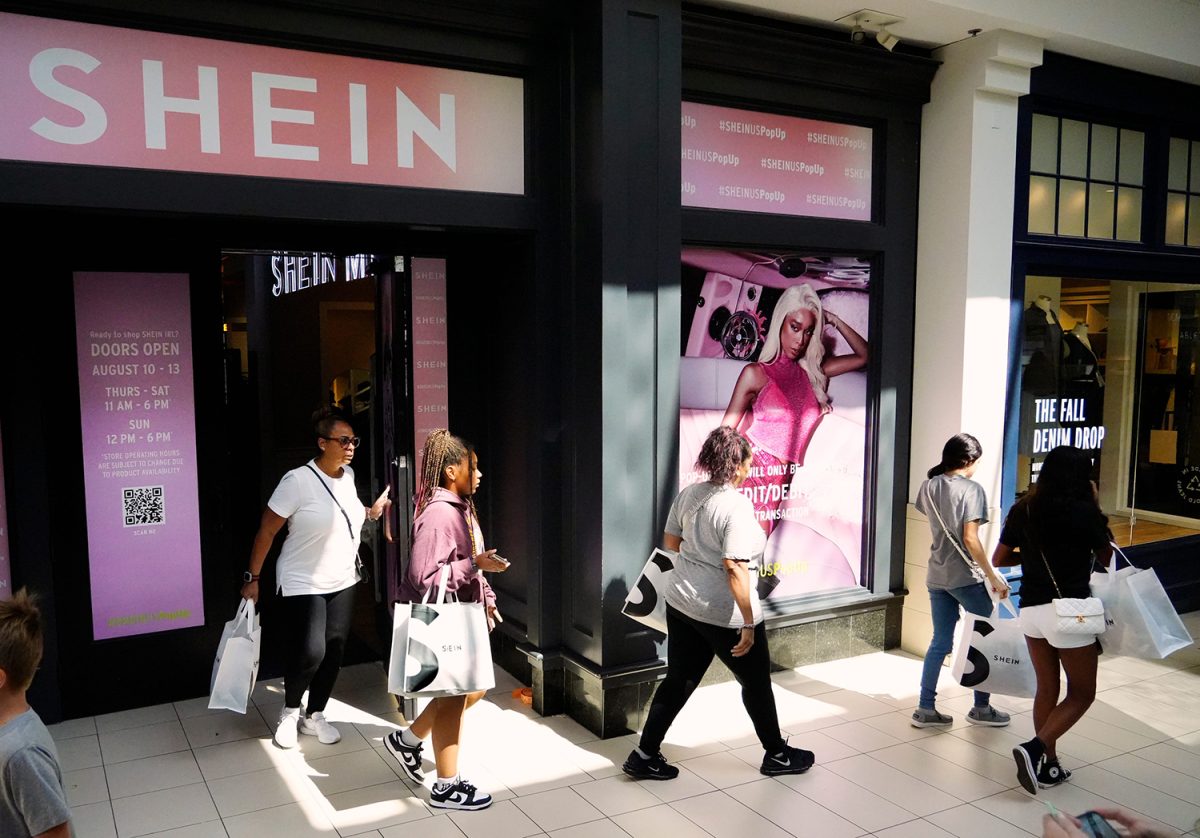It is time for Generation Z to disrupt the reign of fast fashion.
Born among modern consumerism, fast fashion has experienced a meteoric rise over the last few years. According to market data from Gitnux, the global fast fashion market grew from $91.23 billion in 2021 to $99.23 billion in 2022, with an 8.8 percent compound annual growth rate. Gen Z is a huge demographic of this trend.
The industry is one of the main contributors to the worsening waste crisis, water pollution, and carbon emissions. Many fast fashion companies also abuse their workers and steal designs from smaller artists. Therefore, it is our responsibility to stop buying from fast fashion brands and encourage sustainable practices such as thrifting or shopping from small businesses.
Fast fashion brands often target young demographics on social media, adjusting their ads and products according to the collective likes and dislikes of adolescents and young adults. They advertise trendy fashion for a low cost, and influencers are constantly promoting their products.
The convenience and social media presence of fast fashion companies has led to extreme popularity among young people and extreme consequences.
Since becoming wildly popular among today’s youth, the fast fashion industry saw over 92 million tons of clothing material wasted every year, producing over half a million tons of microplastics, Gitnux reported. Additionally, textile dyeing covers 20 percent of global wastewater.
Shein, a $100 billion fast fashion brand, is a prime example of the industry’s unsustainability. In a study by Money.co.uk, the company’s online sales have already surpassed Nike, Adidas, and Macy’s. However, not only is the clothing quality terrible, but their carbon dioxide emissions also now accumulate to 6.3 million tons.
According to an article from Business Insider, staff at Shein stated their utilization of a digital supply chain minimizes surplus inventory and decreases wastage. They also claimed to employ digital printing techniques with reduced water consumption and reported their efforts to sell surplus stock before donating it. However, the Business of Fashion stated Shein creates 314,877 new styles every year, which minimizes their “eco-friendly” claims.
Gitnux reported that 93 percent of clothing brands are not paying their workers a living wage to feed their families. Their clothes are only affordable because of the workers’ low pay and unsafe working and living conditions. Rivers and wildlife in China, India, and Bangladesh — some of the countries where these companies employ hundreds of thousands of workers — have become biological dead zones and contain cancer-causing chemicals.
Shein is one of these companies that have been publicly exposed for violating labor laws as well. The U.K.’s Channel 4 made a documentary called “Inside the Shein Machine,” sending undercover cameras to film factory workers and their working conditions.
They found that the workers were forced to work 17-hour shifts making hundreds of clothes all day, and if the clothes had any mistakes, the workers would lose a portion of their pay, which was $20 a day.
Shein is also known for stealing designs from smaller designers. Ethically Dressed reported over 30 brands that Shein stole from with side-by-side evidence, including Bailey Prado, Indigo Child, Maison Cleo, and Elora Pautrat.
There are much better places for us to shop cheap, such as Goodwill, Stuff Etc., or locally owned clothing shops. It is time we invest in better quality clothing we don’t have to keep buying replacements for. You never know what gems you could find for a better price in these more sustainable shops than what you’re getting at places like Shein, Zara, or H&M.
It’s our generation’s due diligence to stop supporting unsustainable businesses that abuse their employees, trash the environment, and steal designs.












